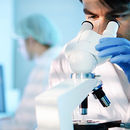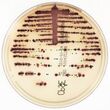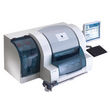Infectious Diseases

The history of bioMérieux is directly linked to the fight against infectious diseases. bioMérieux provides tests for the early detection of infectious diseases. In addition, bioMérieux also has extensive expertise in the fields of antimicrobial resistance and healthcare associated infections. The company also has designed research programs for emerging diseases.
For More
Information
CNS InfectionsGastrointestinal InfectionsDiagnosis of gastrointestinal infections is largely performed through laboratory tests used for culture or antigen detection from stool specimens. In certain cases, antibiotic susceptibility testing is used to determine microbial resistance to antibiotic therapy. Respiratory InfectionsIn a hospital Emergency Department context, biological diagnostic tests are essential for the diagnosis of severe respiratory infections. This is particularly true for hospital-acquired respiratory infections, where the frequency of multi-resistant bacteria necessitates the identification of acquired resistance mechanisms. These diagnostic tests also enable rapid differential diagnosis to help exclude other suspected conditions such as pulmonary embolism, heart failure, and acute coronary syndrome. Sexually Transmitted Diseases (STDs)Effective clinical management of STDs should include screening of sexually active individuals with appropriate laboratory tests, providing a definitive diagnosis and treatment, as well as education and screening/treatment of partners. |
TuberculosisCulturing Mycobacterium tuberculosis can be a lengthy process, requiring several weeks on traditional, solid media. In recent years, the development of liquid culture media used in conjunction with automated systems such as the BacT/ALERT® 3D, has significantly shortened the culture time needed for detection of mycobacteria. Urinary Tract Infections (UTIs)UTIs are relatively easy to diagnose. A clean-catch urine specimen is used and a urine analysis is performed to determine the presence of a high level of white blood cells, which may indicate a bacterial infection. The specimen may then be cultured to determine the type of bacteria, and a susceptibility test performed to determine which antibiotics should be used to treat the infection. However, UTIs also account for many nosocomial infections, mainly due to urinary catheters. These hospital-acquired infections tend to be more serious because the bacteria that cause them are often resistant to drug treatment and patients are often in poor general health. The recent emergence of such drug-resistant strains requires additional expertise to reveal complex resistance mechanisms. Susceptibility tests combined with expert interpretation software capable of identifying resistance mechanisms are therefore required to determine antibiotic efficacy and orient therapy. Yeast InfectionsYeast infections are the fourth most common cause of sepsis in hospitalized patients, and morbidity and mortality are significant, especially if appropriate treatment is delayed. |








